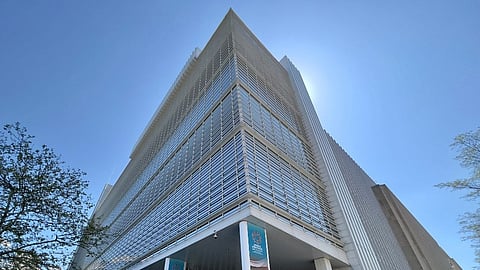
- NEWS
- the EDIT
- COMMENTARY
- BUSINESS
- LIFE
- SHOW
- ACTION
- GLOBAL GOALS
- SNAPS
- DYARYO TIRADA
- MORE

The country's human capital development lagged from its regional peers due to the lack of investments in children's early years, Washington-lender World Bank said on Monday.
A report from the multilateral lender's "The Philippines Human Capital Review" showed that the Philippines Human Capital Index reached 0.52, meaning that a child born in the Philippines in 2020 can only achieve about 52 percent of its potential productivity by the age of 18.
World Bank defines human capital as the knowledge, skills, health, and experience that people accumulate throughout their lives.
The Philippines' HCI value is below the regional average of 0.56 for upper middle-income countries. The ratings of Vietnam reached 0.69, Malaysia and Thailand at 0.61, and Indonesia at 0.54.
Three primary factors are taken into account while calculating the country's HCI: health, learning-adjusted years of schooling, and survival.
Five of the six subcomponents—the probability of survival to age five at 0.97, learning-adjusted years of school at 7.49, fraction of children under five not stunted at 0.7, and adult survival rate of 0.82—showed lower performance for the Philippines than for its regional counterparts.
With an expected years of school score of 12.95, the nation outperformed its peers—Vietnam scored 12.86, Thailand scored 12.72, Malaysia scored 12.47, and Indonesia scored 12.39—as well as the average UMIC score of 11.8.
“It is important for the country to really catch up in these areas and investing in human capital is not only urgent but also important for the Philippines,” World Bank country director for Brunei, Malaysia, Philippines, and Thailand Ndiamé Diop said during the launch of the report in Taguig City.
“The country needs to catch up, you know, with regional peers, but also the long-term growth of the Philippines, also whether the Philippines will reach high-income economy and development status would really depend on investment in human capital today, so this is also what’s at stake,” he added.
Although the government is carrying out initiatives to boost human capital, National Economic and Development Authority (NEDA) Secretary Arsenio Balisacan acknowledged that more has to be done to capitalize on Filipinos' capacity for long-term prosperity.
Programs that foster human capital development include food stamp programs, the institutionalized Pantawid Pamilyang Pilipino Program (4Ps) to lower poverty, and providing health and nutrition assistance for children under two years old and pregnant women who are nutritionally at-risk.
Still, Balisacan stressed the significance of having a program that addresses the entire life cycle.
"While we have been addressing education and health issues, human capital in general, I think we have to take a whole of government approach," Balisacan said.
"In the 4Ps for example, we only cover children or families who have children elementary to high school. But, what about for those who are not in school yet? Who are poor, but what studies show is that if you miss the first five years of mental development, emotional development, psychosocial development, then you have missed already a lot and that cannot be recovered. So, it's very important that you are able to have a program that covers that whole cycle," Balisacan added.
